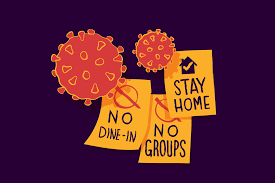Personality Plays Role in Body Weight – Study Says
- By Molly Allen
- •
- 03 Aug, 2011
July 18, 2011
Impulsivity strongest predictor of obesity
Related
- Personality and Obesity Across the Adult Life Span (PDF, 185KB)
WASHINGTON—People with personality traits of high neuroticism and low conscientiousness are likely to go through cycles of gaining and losing weight throughout their lives, according to an examination of 50 years of data in a study published by the American Psychological Association.
Impulsivity was the strongest predictor of who would be overweight, the researchers found. Study participants who scored in the top 10 percent on impulsivity weighed an average of 22 lbs. more than those in the bottom 10 percent, according to the study.
“Individuals with this constellation of traits tend to give in to temptation and lack the discipline to stay on track amid difficulties or frustration,” the researchers wrote. “To maintain a healthy weight, it is typically necessary to have a healthy diet and a sustained program of physical activity, both of which require commitment and restraint. Such control may be difficult for highly impulsive individuals.”
The researchers, from the National Institute on Aging, looked at data from a longitudinal study of 1,988 people to determine how personality traits are associated with weight and body mass index. Their conclusions were published online in the APA’s Journal of Personality and Social Psychology®.
“To the best of our knowledge, we are the first to examine whether personality is associated with fluctuations in weight over time,” they wrote. “Interestingly, our pattern of associations fits nicely with the characteristics of these traits.”
Participants were drawn from the Baltimore Longitudinal Study of Aging, an ongoing multidisciplinary study of normal aging administered by the National Institute on Aging. Subjects were generally healthy and highly educated, with an average of 16.53 years of education. The sample was 71 percent white, 22 percent black, 7 percent other ethnicities; 50 percent were women. All were assessed on what’s known as the “Big Five” personality traits – openness, conscientiousness, extraversion, agreeableness, and neuroticism – as well as on 30 subcategories of these personality traits. Subjects were weighed and measured over time. This resulted in a total of 14,531 assessments across the 50 years of the study.
Although weight tends to increase gradually as people age, the researchers, led by Angelina R. Sutin, Ph.D., found greater weight gain among impulsive people; those who enjoy taking risks; and those who are antagonistic – especially those who are cynical, competitive and aggressive.
“Previous research has found that impulsive individuals are prone to binge eating and alcohol consumption,” Sutin said. “These behavioral patterns may contribute to weight gain over time.”
Among their other findings: Conscientious participants tended to be leaner and weight did not contribute to changes in personality across adulthood.
“The pathway from personality traits to weight gain is complex and probably includes physiological mechanisms, in addition to behavioral ones,” Sutin said. “We hope that by more clearly identifying the association between personality and obesity, more tailored treatments will be developed. For example, lifestyle and exercise interventions that are done in a group setting may be more effective for extroverts than for introverts.”
Article: “Personality and Obesity Across the Adult Life Span,” Angelina R. Sutin, PhD, Luigi Ferrucci, MD, PhD, Alan B. Zonderman, PhD, and Antonio Terracciano, PhD, National Institute on Aging, National Institutes of Health, Department of Health and Human Services, Journal of Personality and Social Psychology, Vol. 101, No. 3.
Dr. Sutin can be contacted through the NIA Office of Communications by email or by phone at (301) 496-1752
The American Psychological Association, in Washington, D.C., is the largest scientific and professional organization representing psychology in the United States and is the world's largest association of psychologists. APA's membership includes more than 154,000 researchers, educators, clinicians, consultants, and students. Through its divisions in 54 subfields of psychology and affiliations with 60 state, territorial and Canadian provincial associations, APA works to advance psychology as a science, as a profession and as a means of promoting health, education and human welfare.
July 18, 2011
Impulsivity strongest predictor of obesity

Click here for the story: Wichita Parents, Students Adjust

Coronavirus panic could compromise your immune system

Vote 2020 Securing Your Vote

Impeachment Fatigue

Lately it has been hard to keep up on all the mass shooting tragedies around us. In order to not lose our humanity, and to remain in touch with the issues that matter, without overwhelming ourselves, here are some tips.






